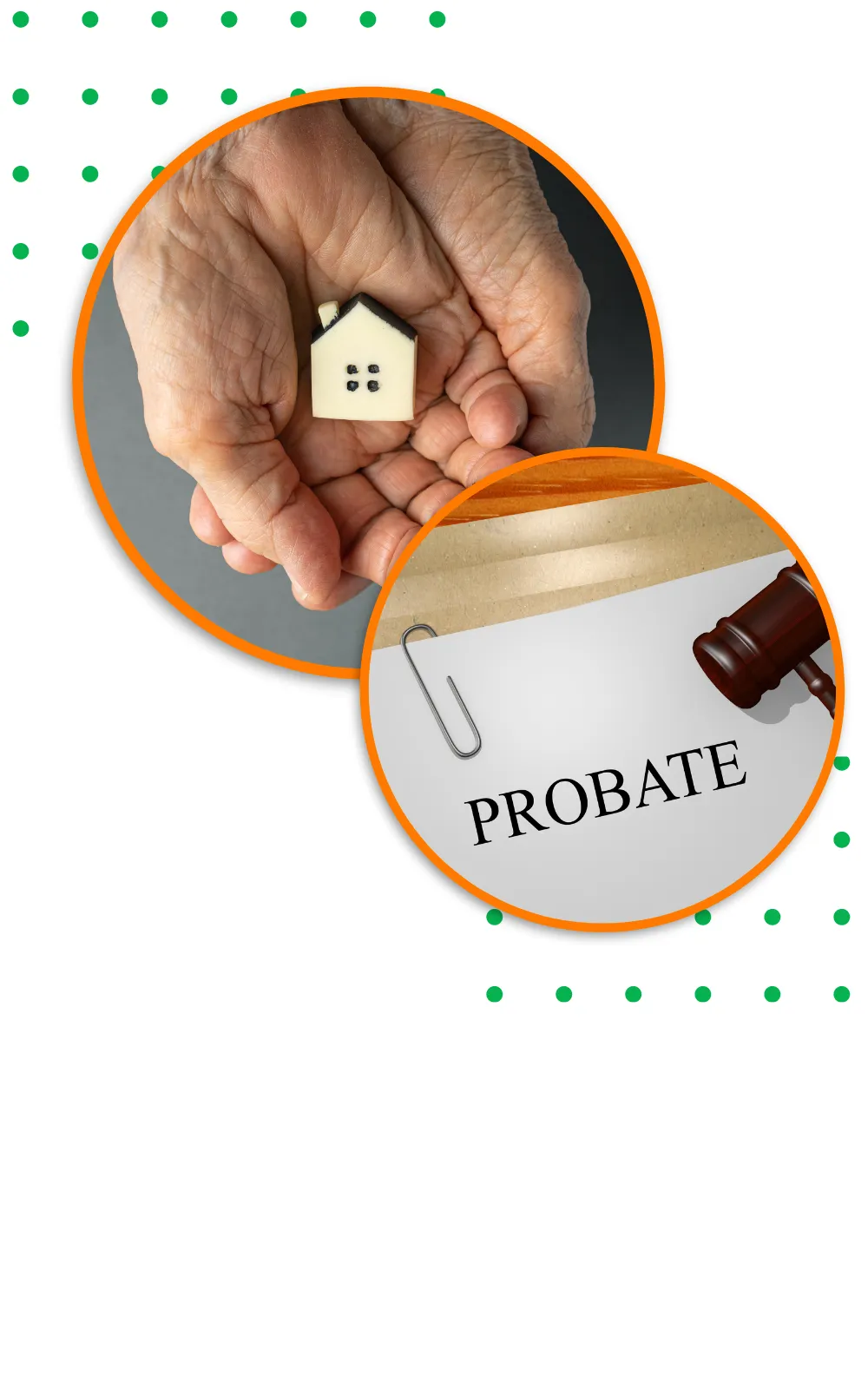Greater Cincinnati's Local Real Estate Specialists
How To Sell An Inherited or Probate House in Ohio & Kentucky?


Have you recently inherited a house of a loved one? Or do know someone who has recently been put in a similar circumstance?
This is a common situation that many family members find themselves in when their loved ones pass. The hardest situation is knowing the right course of action to take when taking care of the home.
Here is some information you are going to want to know if you decide you would like to sell this inherited house…
All types of real estate (land, condo, house etc), are always processed and sold through the probate process. The difficulty or ease of the sale depends on if the deceased had left a will or testament behind or not.
It is usually much easier for the executor to sell real estate when the decedent created a will. This is because most wills give the Executor the power to sell the real property. If the will contains such a “power of sale,” then the Executor can sell the real estate under terms that are in the best interest of the estate by signing a deed without the prior approval of the probate court.
If they did not leave behind a will or testament, you will need to file a petition seeking administration of the estate, and a notice of administration must be given to all legal heirs. The person filing the petition requests that the court appoints them as the estate's personal representative, a role similar to that of executor.
Once this is complete, you can move forward with selling the property.
Probate Process Overview:
#1) - File a Petition to Become the Estate Executor
In order to take the next steps to getting the property ready to sell, you are going to need to go to the county courts where the deceased resided in and file for a probate petition.
The probate petition typically consists of an application that needs to be filed in order to be officially appointed as the executor, the death certificate, and the original will. A petitioner must ask the probate court to officially be appointed as the executor regardless of whether the decedent’s will has named them as an executor.
The petitioner (most likely that will be you) will be responsible for sending formal legal notices to any beneficiaries or other heirs about the date and time of the hearing. This is not always the case, and you will need to check with the court upon filing.
You may also be required to notify any creditors or other interested parties and publish a notice in the newspaper to reach unidentified parties.
Once the hearing commences, any interested party may object to the petition. If no party files an objection, a petitioner may be appointed as the executor without appearing at the hearing. You should consult with a lawyer or court clerk to determine if your appearance is necessary. If the court approves the petition, it will issue documents authorizing the petitioner to act as the executor.
#2) - Property Appraisal & Inventory
The first step of action you are going to take is to get the property or home appraised. This is similar to a normal home appraisal with a couple extra steps…
The Personal Representative in the probate estate must file a document called Inventory and Appraisal with the court within four months of receiving Letters of Administration.
Inventory and Appraisal is a document that lists all of the estate’s assets and appraises the value of those assets. The purpose of the Inventory and Appraisal is to determine the value of the decedents’ assets at the date of their death. Ultimately, the appraisal values set forth in the Inventory and Appraisal will set the base values for determining the statutory fees to be paid at the end of the probate matter.
The Inventory should include all of the decedent’s assets, such as real property; cash, checking, savings, and investment accounts; household furniture; jewelry; collectibles such as coin collections, antiques, and record collections; business interests, and any other assets.
#3) - Court Confirmation
The executor can only list the house on the market and make a sale after the specified wait period has expired and court approval is gained. This timeline varies state to state.
In the state of Ohio, most straightforward probate cases can be wrapped up within about nine months after the executor or administrator is appointed. Creditors have six months to file a claim, so probate must last at least that long. If the estate owes state or federal estate tax, it's likely to take a year or more.
#4) - Putting the House on the Market
The executor must agree on a reasonable price to list the property and commission to pay the real estate agent that will cover any maintenance costs to the property before selling.
Executors must maintain the home insurance policy and the vehicle insurance during the entire period until the sale.
After someone makes an offer on the property, another court hearing will be required. While the parties wait for the hearing to take place, the real estate sale must be advertised in a local newspaper, and the advertisement must mention the offer sales price. Doing so allows other potential buyers the chance to bid on the real estate property at the court hearing.
#5) - Sell The Property
Once the bids have come in, the court will confirm the sale, and you as the executor of the property will be able to close on the property. Once this process is complete you will get paid and can move forward.

We Can Work With Most Situations, Most Conditions...
Our team at 513 Home Investments specializes in buying properties that are a burden and you are ready to let go of. We work with homeowners to get them a fair market value price for their house, and we take care of the extra work and burdens without penalizing home owners. In a situation such as this, we would take all parties into consideration and make the home selling process as painless and quickly as possible.
We Don't Just Make An Offer... We Give You Options...

Submit Your Home
Fill out the form on our website above and we'll reach out to you to see your house!

Receive Your Offer + Options
Once we have evaluated your house, we will contact you with the best options!

Sell Your Home Today
If you choose to move forward, we will help you each step of the way!
We're local home buyers you can trust!
We buy homes at a fair market price in Greater Cincinnati & Northern Kentucky

Client Reviews

© Copyright 2022 - 513 Home Investments, LLC All Rights Reserved | Privacy Policy







